When Life Gives You Lemons – Turn Sour Situations Sweet
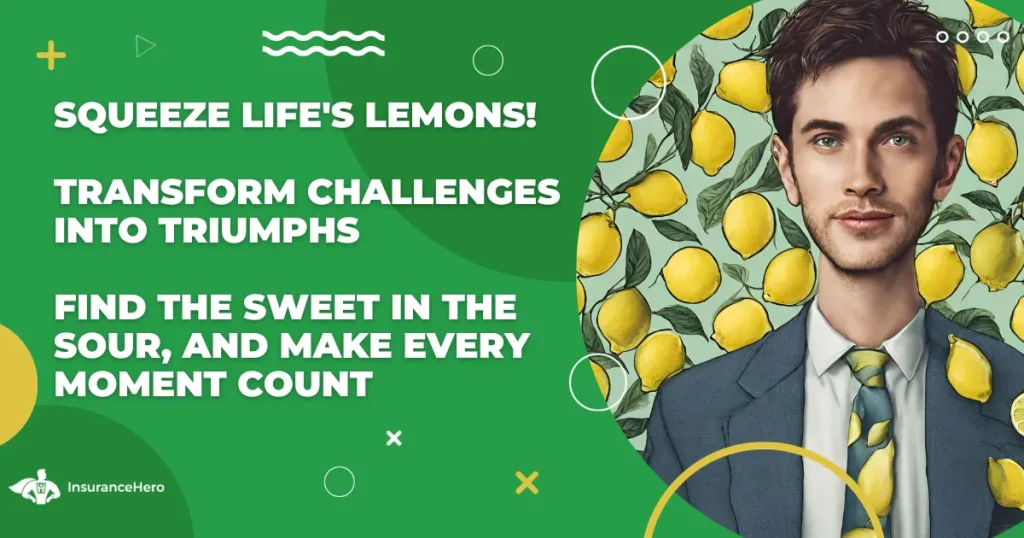
Life is full of surprises and challenges. Sometimes, we face situations that seem impossible to overcome, leaving us overwhelmed, helpless, and lost.
But what if we told you there is a way to transform any sour situation into a sweet triumph?
The phrase “when life gives you lemons” means making the best out of difficult situations and turning them into positive experiences. It is about finding the silver lining in every cloud and using adversity as a growth and personal development catalyst.
Humans are resilient creatures at our core, and “when life gives you lemons,” we can rise above the challenges we face, using them as stepping stones to a brighter future.
When life seems bitter, and that bowl of cherries is almost empty, we should remember that:
- Adversities can be used as stepping stones towards a better future.
- Cultivating a positive mindset and embracing change can help us turn setbacks into opportunities.
- We can become more optimistic by changing things that bring us down, laughing more, staying healthy, hanging out with cheerful people, and speaking kindly to ourselves.
- Failure can be turned into a learning opportunity for personal and professional growth.
- We can inspire and uplift others through difficult times by sharing our stories.
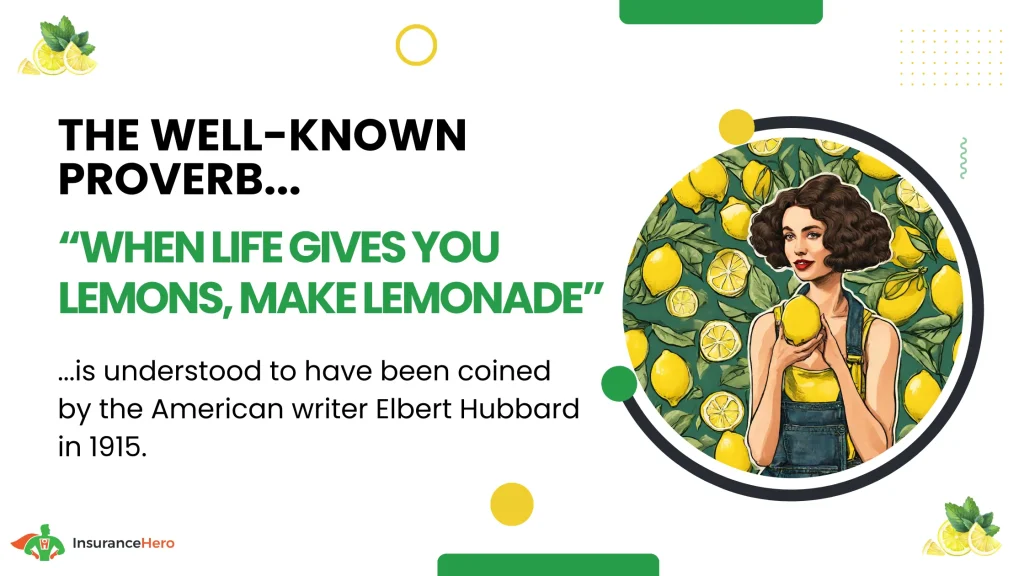
The Origin Of The Proverb “When Life Gives You Lemons, Make Lemonade”
The phrase “When life gives you lemons, make lemonade,” imbued with a spirit of resilience and optimism, was first introduced to the public lexicon by the American writer Elbert Hubbard in 1915.
He employed these words to encapsulate a philosophy that champions transforming adversity into opportunity. This ethos suggests meeting challenges with a positive can-do attitude that could yield sweet rewards, akin to turning sour lemons into refreshing lemonade.
This proverb rapidly gained currency as an anti-proverb – a twist on traditional sayings – advocating an active response to life’s hardships rather than passive acceptance. His words have become very famous, and people still use them today.
Finding Inspiration in Adversity
When life gives you lemons, seeing the sweetness in the sour can be difficult. But in times of adversity, we can find inspiration in unexpected places.
Below are some of our favourite “when life gives you lemons” quotes that remind us to stay resilient, motivated, and positive:
“Life is not always a matter of holding good cards, but sometimes, playing a poor hand well.” – Jack London
“When one door of happiness closes, another opens; but often we look so long at the closed door that we do not see the one which has been opened for us.” – Helen Keller
“Strength does not come from winning. Your struggles develop your strengths. When you go through hardships and decide not to surrender, that is strength.” – Arnold Schwarzenegger
These quotes remind us that even in the face of challenges, we can turn difficult situations into opportunities for growth and success. It’s up to us to make the most of what we have and create a brighter future.
Staying motivated and positive can help us overcome obstacles and achieve our goals. The meaning behind “When Life Gives You Lemons” is about taking control of our circumstances and making the most of what we have. With the right mindset, anything is possible.
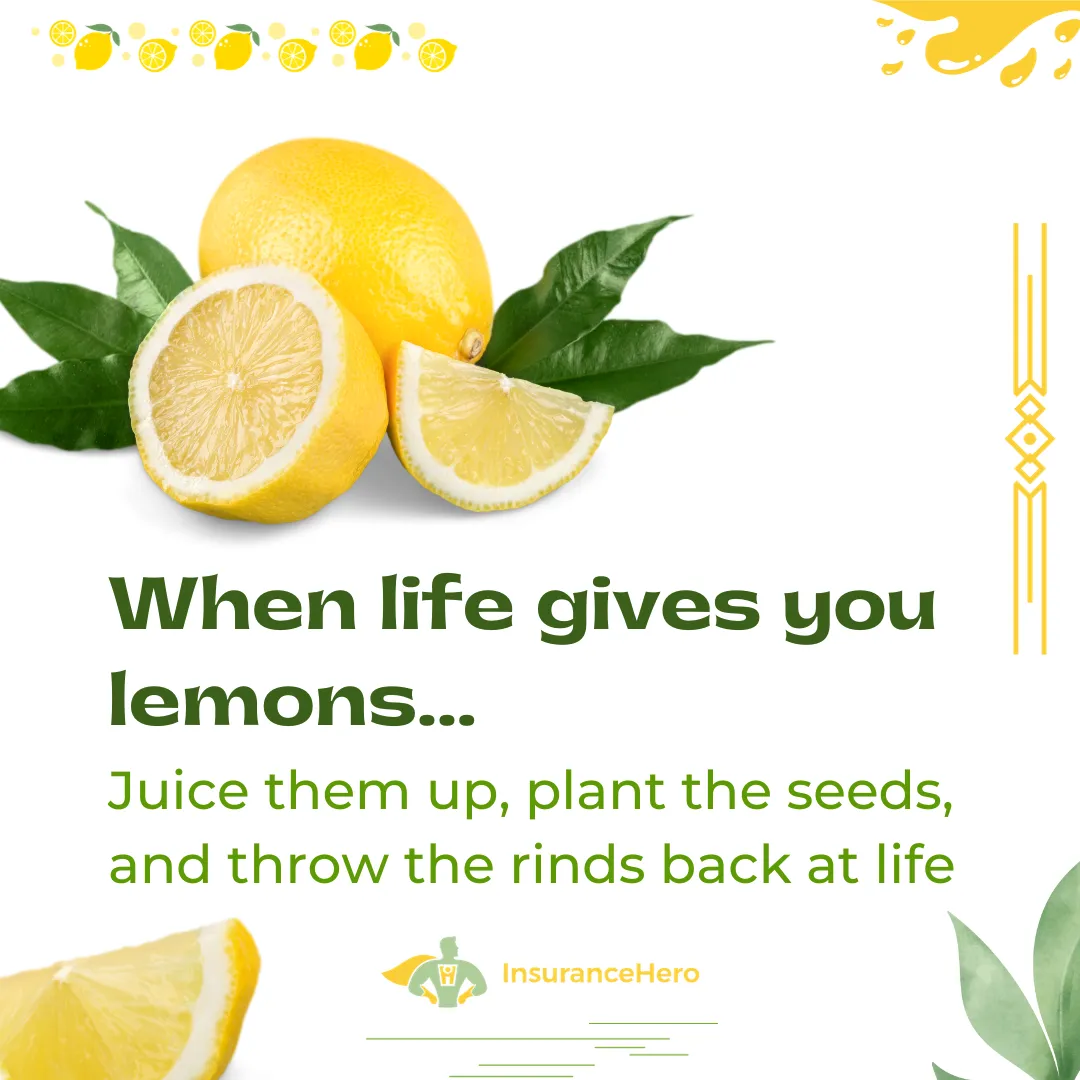
Embracing A Positive Mindset
When life seems sour, it can be challenging to stay positive, but it’s essential to maintain a hopeful outlook to face difficulties with grace and resilience. A positive mindset lets us focus on solutions rather than problems, look at the bigger picture, and find deeper meaning in our struggles.
One way to cultivate positivity is through gratitude. When we are grateful for the good things in our lives, we focus less on what we lack and more on what we have. Gratitude cultivates a sense of abundance and helps us see our challenges in perspective, reminding us that we have the strength to overcome them.
“Gratitude turns what we have into enough.” – Anonymous
Another way to boost positivity is by visualising a positive outcome. When we imagine ourselves overcoming obstacles and achieving our goals, we plant the seeds of success in our minds.
This technique helps us build confidence and optimism, making staying motivated and focused on our aspirations easier.
Finally, self-care is crucial in maintaining a positive mindset. Taking care of ourselves physically, emotionally, and mentally allows us to thrive.
Whether through exercise, meditation, or spending time with loved ones, self-care replenishes our energy, improves our mood, and boosts our overall well-being.
By cultivating gratitude, visualising success, and prioritising self-care, we can approach challenges with resilience and hope. Let’s embrace the sour moments, turn them into opportunities, and savour the sweetness of life’s victories.
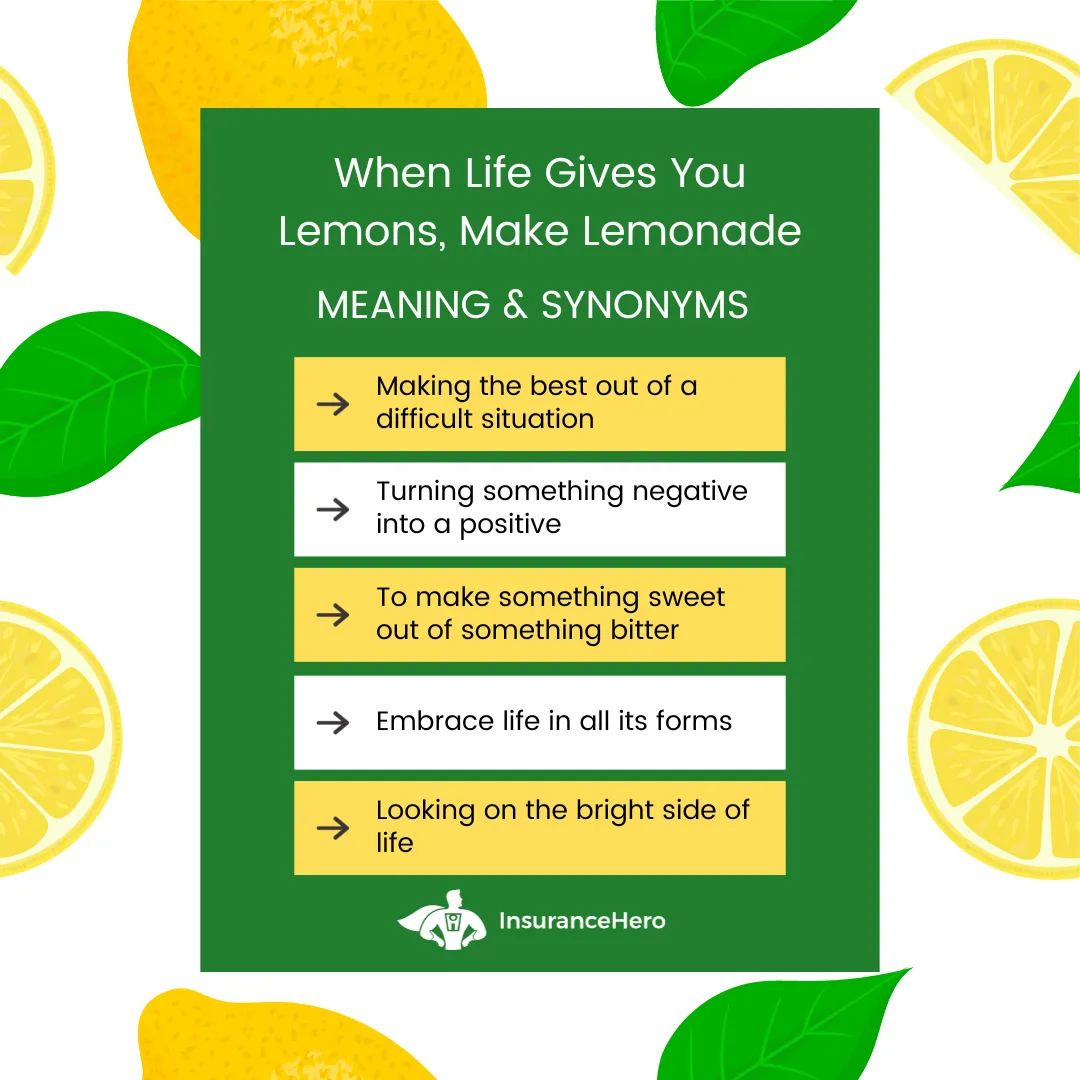
Turning Setbacks Into Opportunities
Life is full of surprises, and not all of them are pleasant. Sometimes, we might feel like we’re drowning in a sea of lemons, unable to catch a break. But as they say, when life gives you lemons, add tequila and salt and make the best of it.
Turning setbacks into opportunities requires creativity and a willingness to take risks. It might not be easy, but it’s always possible. One way to start is by reframing the situation. Please identify what you can learn from it instead of focusing on what went wrong. Failure is not the opposite of success; it’s a part of it.
An Interesting Analogy Table: Lemons Vs Tequila And Salt!
| Lemons | Tequila | Salt |
|---|---|---|
| Disappointment | Opportunity | Growth |
| Setback | Risk-taking | Resilience |
| Mistake | Creativity | Adaptability |
Trying new things can be scary, but it can also be liberating. We open ourselves to new experiences and possibilities outside our comfort zone.
A setback might be just what we need to push ourselves to the next level.
Of course, it’s great to be strategic. Taking risks doesn’t mean being reckless. We must assess the situation, weigh the pros and cons, and make informed decisions. But sometimes, the best way to move forward is to leap of faith.
Remember, when life gives you lemons, there’s always a way to turn them into lemonade. Or, if you prefer, add some tequila and salt and make a margarita. Whatever you like, the key is staying positive, focused, and moving forward.
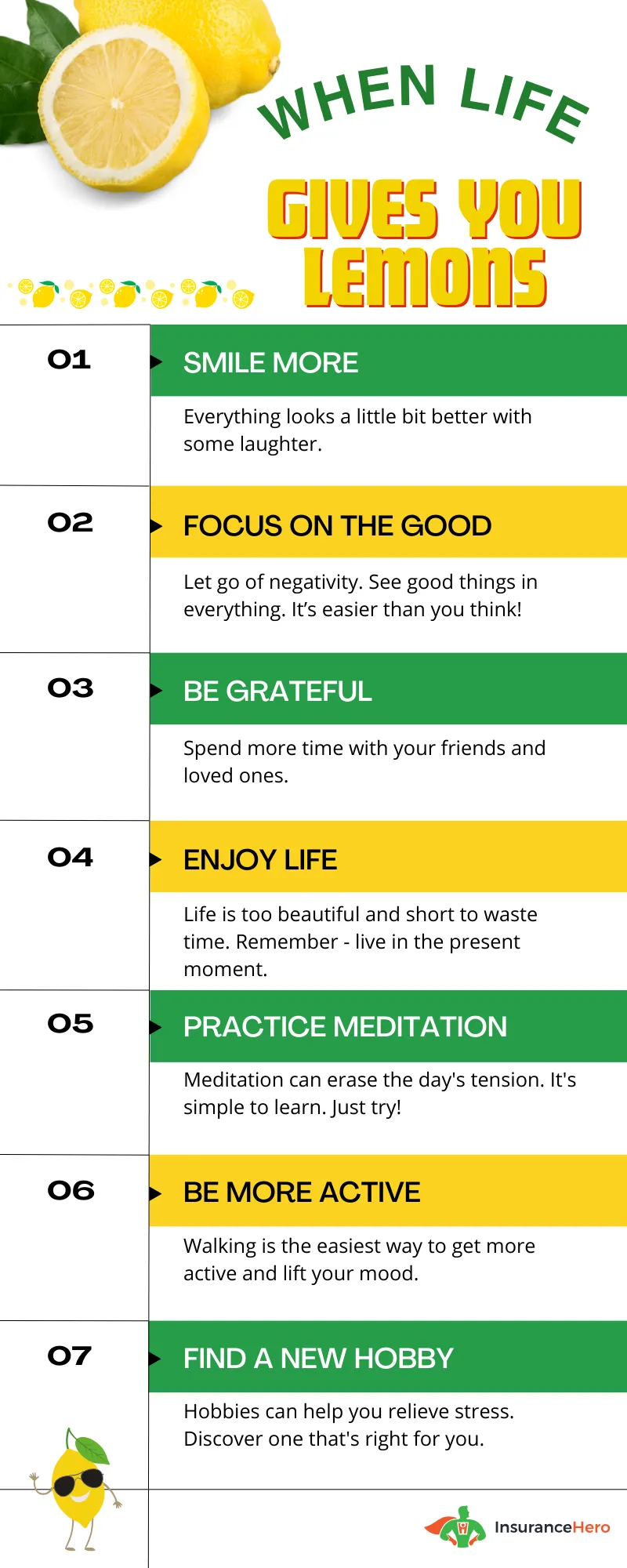
Learning From Failure
Failure is a natural part of life, and it happens to everyone. It is essential to remember that setbacks can teach us valuable lessons. Sometimes, the best thing we can do is embrace failure and use it as an opportunity for growth and improvement.
It’s okay to make mistakes; they are necessary for progress. We can learn from our failures and avoid repeating the same mistakes. This means taking responsibility for our actions and being honest about our mistakes.
When we fail, we may feel discouraged or disappointed. However, it’s crucial to remember that failure does not reflect our self-worth. Instead, we should approach failure with curiosity and a willingness to learn.
“Success is not final, failure is not fatal: it is the courage to continue that counts.” – Winston Churchill.
Learning from failure requires resilience and persistence. We must be willing to try again and keep going until we achieve our goals. This means being patient with ourselves and understanding that progress takes time.
It’s also wise to seek feedback from others, whether from a mentor, colleague, or friend. Their insights can help us gain a fresh perspective and identify areas for improvement.
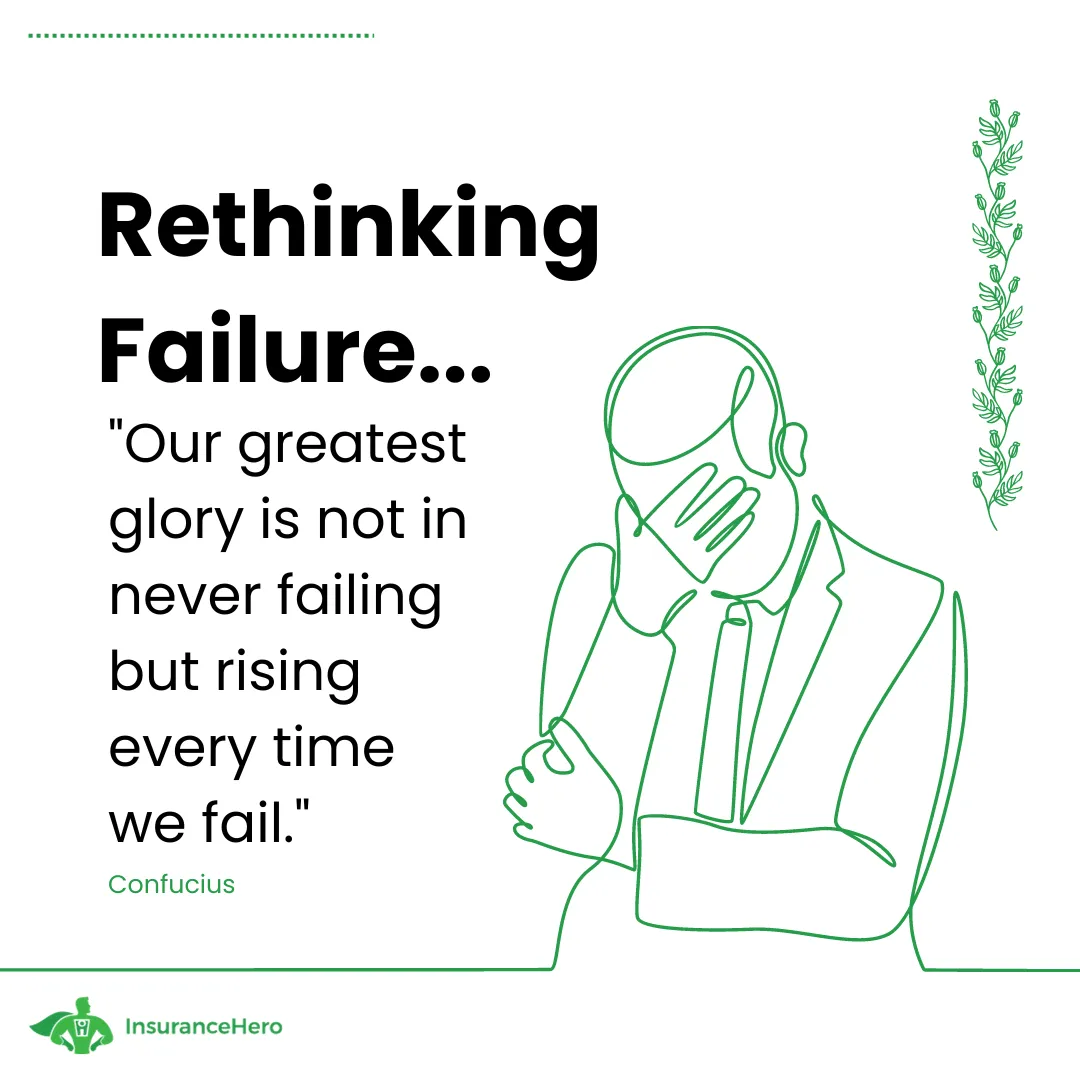
Cultivating Resilience
When we face challenging situations, it can be easy to feel overwhelmed and defeated. However, by cultivating resilience, we can bounce back more substantial and more adaptable than ever before.
As we navigate life’s obstacles, we should develop resilience to help us navigate the ups and downs of our journeys.
Resilience is the ability to recover and adapt to difficult circumstances. It’s not about avoiding these situations but embracing them as opportunities for personal growth and learning.
When we develop resilience, we can approach challenges positively, knowing we have the internal resources to overcome them.
“The oak fought the wind and was broken. The willow bent when it must and survived.” – Robert Jordan.
Developing resilience is not easy but can be achieved with dedication and practice.
Here are some strategies that can hopefully help you:
| Strategy | How It Helps |
|---|---|
| Self-Care | Taking care of our physical, emotional and mental health is crucial to building resilience. This includes getting enough sleep, eating well, exercising regularly, and practising mindfulness. |
| Support Systems | Having a support system in place can help us cope with difficult situations. This can include family, friends, mentors, and mental health professionals who can provide guidance and support. |
| Embracing Change | Life is full of unexpected changes, and developing the ability to adapt is key to building resilience. This involves being open to new experiences and looking for opportunities to grow and learn. |
By cultivating resilience, we can develop the inner strength and determination to face any challenge that comes our way.
We can turn difficult situations into opportunities for growth and personal development with resilience. Let’s embrace our challenges and use them as stepping stones towards a brighter future.

Finding Meaning And Purpose
When life gives you lemons, it can be an opportunity to take a step back and reflect on what truly matters in your life. Our challenges can often lead to moments of clarity and help us re-evaluate our goals and purpose.
“Life is 10% what happens to us and 90% how we react to it.” – Charles R. Swindoll
Reflecting on these wise words can help us understand that while we may not always control our circumstances, we can control our mindset and reactions towards them.
We must ask ourselves what we want to achieve and how we can use our struggles to get there.
Finding meaning and purpose can help us stay motivated and focused, especially during challenging times.
One way to do this is by taking a step back and assessing our core values. Are we living in alignment with them? Are our actions and decisions reflecting what is most important to us?
Another way is to seek new experiences and opportunities that align with our passions and interests. Changing scenery or pursuing a new hobby can sometimes lead to a newfound sense of purpose and direction.

The tables below focus on practical applications of the “If life gives you lemons” philosophy
These include creative problem-solving, financial resilience, and community support. I hope you find these actionable insights helpful in everyday life.
Creative Problem-Solving
| Challenge (Lemon) | Creative Solution (Lemonade) | Benefit |
|---|---|---|
| Lack of resources for a project | Crowdsourcing ideas and funding | Increased community involvement and diverse input |
| Career setback | Pursuing further education or skill development | Enhanced employability and personal growth |
| Personal conflict | Mediation and open dialogue | Improved relationships and communication skills |
Financial Resilience
| Financial Challenge (Lemon) | Resilient Action (Lemonade) | Outcome |
|---|---|---|
| Unexpected job loss | Creating a budget and starting a side hustle | Financial stability and new income sources |
| High debt levels | Debt consolidation and financial counselling | Reduced debt and improved financial literacy |
| Investment loss | Diversifying investment portfolio | Reduced risk and potential for future gains |
Building Community Support
| Community Issue (Lemon) | Supportive Initiative (Lemonade) | Impact |
|---|---|---|
| Local business closures | Organising community support and shopping locally | Revitalised local economy and saved jobs |
| Social isolation | Setting up community groups and online meetups | Enhanced social connections and mental health |
| Lack of public spaces | Community-led cleanups and space creation | Improved local environment and community pride |
When Life Gives You Lemons, Change The World! Video Presentation By Vivienne Harr
Inspiring Others
Finding motivation in challenging times can be tough, but nothing is more inspiring than hearing stories of those who have triumphed over adversity. We believe in sharing our experiences and spreading positivity to empower others.
Whether it’s a personal struggle or a professional setback, we all face challenges that can leave us feeling defeated and disheartened. But by sharing our own stories of resilience and triumph, we can show others that it is possible to emerge stronger and more determined than ever before.
“The only way to do great work is to love what you do. If you haven’t found it yet, keep looking. Don’t settle. As with all matters of the heart, you’ll know when you find it.” – Steve Jobs.
By inspiring others, we create a ripple effect of positivity and resilience, empowering those around us to tackle their challenges with grace and determination.
Together, we can create a world where adversity is met with perseverance and setbacks are transformed into opportunities for positive growth.
Let’s share our invaluable stories and encourage others to find their strength to overcome life’s obstacles. And together, let’s create a brighter, more fulfilling future for us all.

The Significance Of Carpe Diem
“Carpe Diem,” a timeless Latin phrase, captures the essence of living life to its fullest. Originating from a poem by Horace, it translates to “seize the day,” urging us to embrace the present and make the most of our current moments.
This concept is more than just a call to action; it’s a philosophy that encourages mindfulness and the appreciation of life’s fleeting nature. Carpe Diem reminds us that the true power lies in the now in a world where the future is uncertain and the past is unchangeable.
It’s an invitation to pursue our passions, cherish our experiences, and live without regret. By seizing the day, we acknowledge life’s impermanence and the importance of making every moment count.
This age-old wisdom continues to resonate, inspiring us to break free from procrastination and hesitation and to embrace the opportunities that life presents boldly.
Remember those tips about staying positive and making lemonade when life seems challenging? They’re simple steps you can start using today. Ask yourself how to turn a bad day into a good one.
First and foremost, challenges are an inevitable part of life – but how we respond to them is up to us. By cultivating a positive mindset and embracing resilience, we can transform even the most difficult situations into opportunities for growth and success.
Remember that failure does not define us – it can be an influential teacher if we approach it with an open mind and a growth-oriented perspective.
When we face adversity, we do not have to face it alone. By seeking out support systems and surrounding ourselves with positivity, we can find the strength to overcome any obstacle.
Wait, there’s more. Here are some frequently asked questions:
Who said, “When life gives you lemons, make lemonade”?
Elbert Hubbard first wrote the phrase, “When life gives you lemons, make lemonade,” which means turning something negative into a positive.
How can this saying help with stress management?
“If life gives you lemons, make lemonade” suggests we should change our thinking and find the good in bad situations, which can help with stress and negative thoughts.
Did anyone else talk about making lemonade from life’s lemons?
Yes, people like Dale Carnegie, who wrote “How to Stop Worrying and Start Living”, also talked about turning challenges into opportunities, just like the lemon saying suggests.
Can kids learn from the “lemonade stand” concept?
Yes, kids running a lemonade stand get to learn how to turn a simple idea into something valuable and fun—it’s like using what life gives them to do something great.
How can I make the best of health issues, and is there a lemonade outcome for my family?
Health issues can impact your family significantly and drain the family’s time and financial resources. Many serious health problems like cancer can be overcome entirely with modern drugs and treatments, and conditions like diabetes can be managed or even reversed.
One way the sick can be cruelly punished is when it comes to life insurance costs. However, Insurance Hero potentially has some great “lemonade” to offer.
The list below shows health issues that Insurance Hero advisers have been able to work around and still get coverage at an affordable price or thoroughly explain away and get standard terms for the person searching for coverage.
- People with pre-existing but understood health conditions.
- Previous heart problems
- People with managed HIV
- Disabled adults with manageable disabilities
- People with High BMI
- People with Low BMI
- Reformed Alcoholics
- Diabetes
- Many cancers in remission
Even people with a long history of managed bipolar disorder have been able to get life insurance coverage.
Is a perceived dangerous occupation always counted as a life insurance lemon?
The Insurance Hero team has also talked to the wives of private pilots and convinced their partners to choose a lemon job. These women have been convinced that private pilot life insurance does not exist, but this is not the case.
Big brands like NatWest, Saga, Legal & General, and Vitality will all consider insuring people in perceived high-risk occupations.
We used the following excellent resources to compile this guide:
- Resilience, An Evolving Concept: (PubMed)
- Childhood adversity and its effects on long-term mental and physical health (BMJ)
- How to Stop Worrying and Start Living (Wikipedia, Dale Carnegie)
Steve Case is a seasoned professional in the UK financial services and insurance industry, with over twenty years of experience. At Insurance Hero, Steve is known for his ability to simplify complex insurance topics, making them accessible to a broad audience. His focus on clear, practical advice and customer service excellence has established him as a respected leader in the field.


